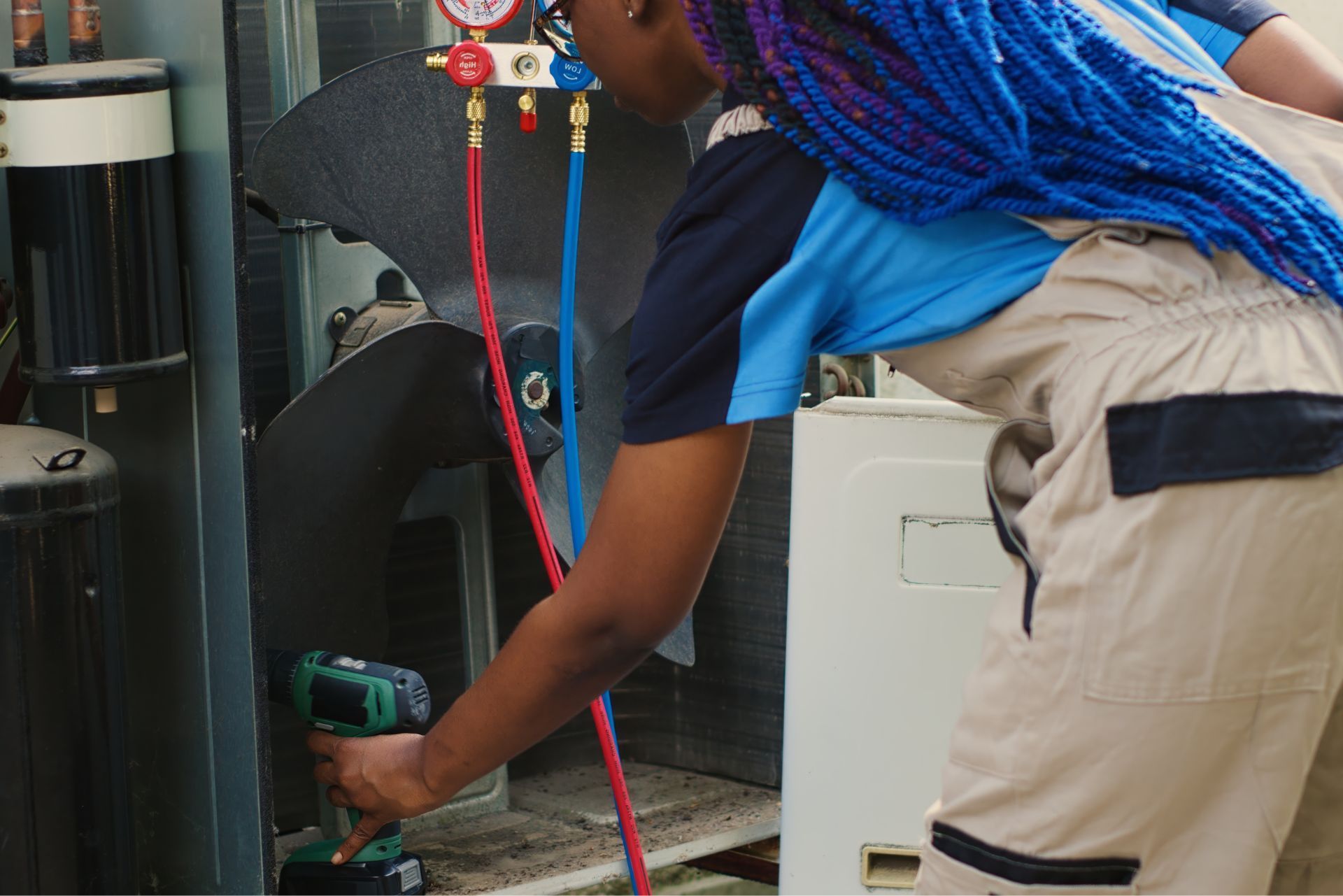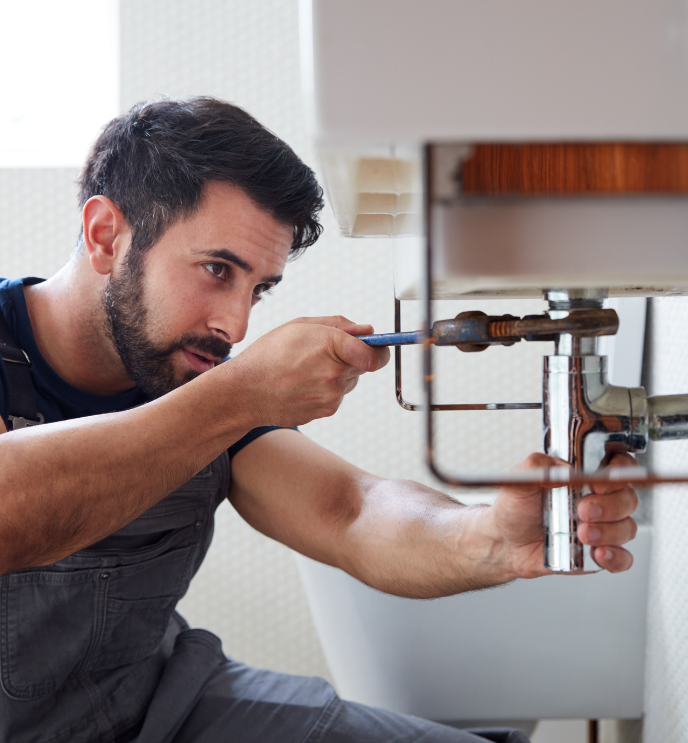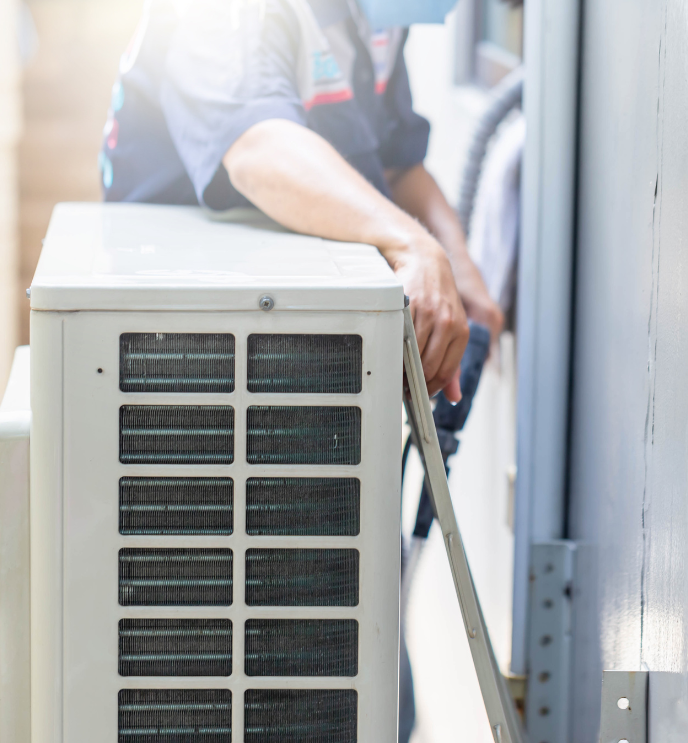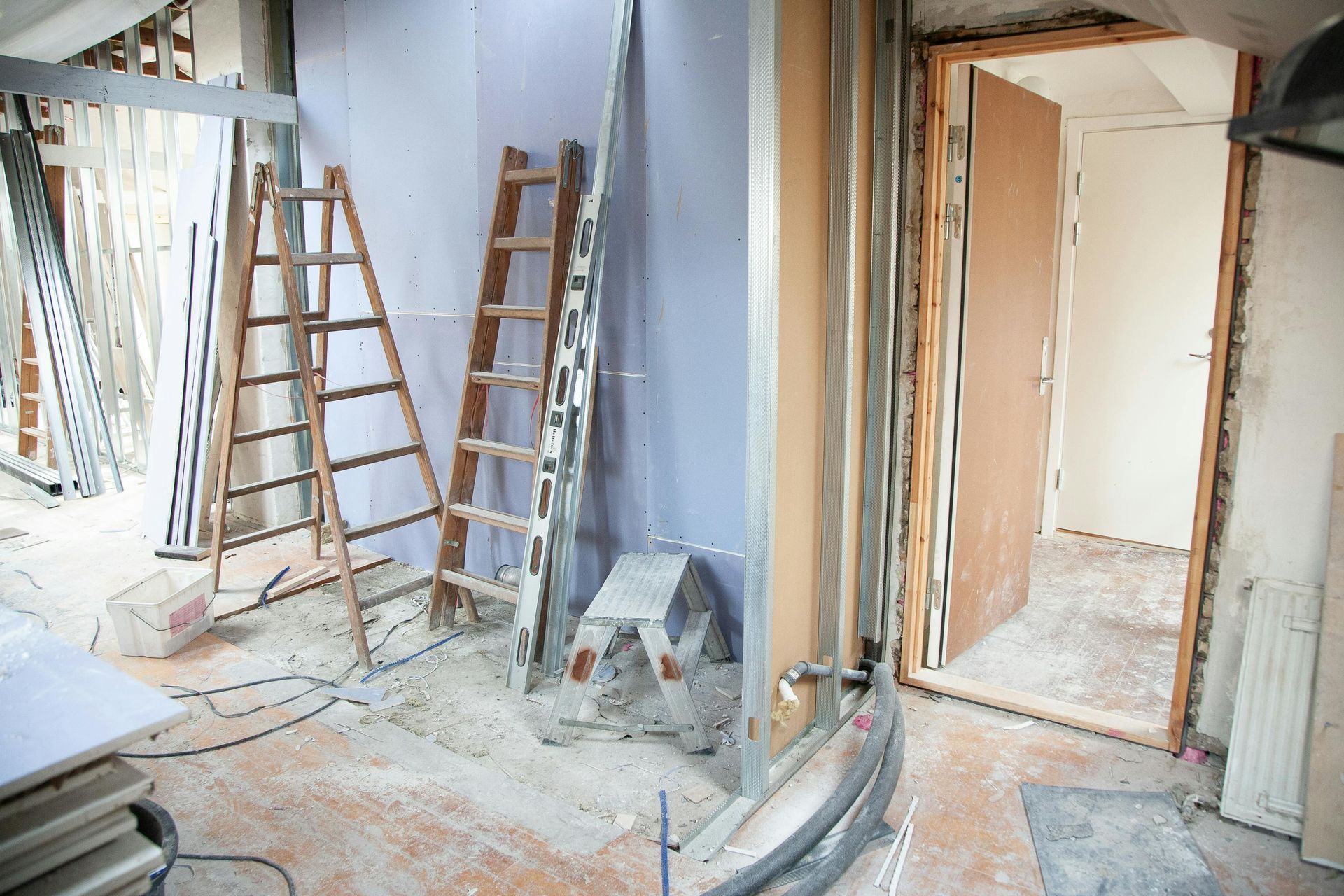Types of Contractors We Serve
Jonathan Behr
Owner of Contractor Insurance Pros by Behr Insurance Services
Index
Contact Us
Phone
Location
Simi Valley, CA 93065
The Woodlands, TX 77382
Katy, TX 77494
In the ever-evolving landscape of home heating and cooling solutions, heat pump technicians play a crucial role. Their expertise not only ensures the efficient operation of these systems but also guarantees the comfort and safety of countless households. However, like any profession, the work of a heat pump technician comes with its own set of risks. This is where specialized insurance becomes essential. This article delves into the various aspects of heat pump technician insurance, exploring its importance, types, and how to choose the right coverage.
Understanding the Need for Insurance
Heat pump technicians are often exposed to various risks, from potential accidents on the job to equipment failure. Understanding these risks is the first step in recognizing the importance of insurance.
Common Risks Faced by Heat Pump Technicians
Heat pump technicians frequently work in diverse environments, including residential homes, commercial buildings, and outdoor settings. Each of these locations presents unique hazards. For instance, technicians may encounter electrical hazards, slip and fall risks, or even exposure to harmful refrigerants. Additionally, the physical demands of the job can lead to injuries, such as strains or sprains.
Moreover, the equipment used by technicians, including tools and vehicles, can be costly. Damage or theft of these assets can significantly impact a technician's ability to perform their job effectively. Therefore, having the right insurance coverage is essential to mitigate these risks. In addition to physical injuries and equipment loss, technicians must also be aware of the potential for environmental hazards. For example, working with refrigerants requires strict adherence to safety protocols to prevent leaks that could harm both the technician and the environment. This adds another layer of complexity to the job, underscoring the need for comprehensive insurance that covers a wide range of potential issues.
The Financial Implications of Not Having Insurance
Operating without insurance can lead to severe financial consequences. If a technician is involved in an accident that results in property damage or personal injury, they may be held liable for the costs associated with that incident. This could include medical expenses, legal fees, and compensation for lost wages. Without insurance, these costs can quickly accumulate, potentially leading to bankruptcy or the closure of a business.
Furthermore, clients may require proof of insurance before hiring a technician. This requirement can limit job opportunities for those without coverage, making it even more crucial to invest in the right insurance policy. Additionally, the lack of insurance can tarnish a technician's reputation in the industry. Word of mouth and online reviews play a significant role in attracting new clients, and any negative experiences related to uninsured incidents can deter potential customers. This not only affects immediate job prospects but can also have long-term repercussions on a technician's career and livelihood.

Types of Insurance Coverage for Heat Pump Technicians
There are several types of insurance coverage that heat pump technicians should consider. Each type serves a specific purpose and can provide valuable protection against different risks.
General Liability Insurance
General liability insurance is fundamental for any technician. This coverage protects against claims of bodily injury, property damage, and personal injury that may occur during the course of work. For example, if a technician accidentally damages a client's property while installing a heat pump, general liability insurance can cover the costs associated with repairs or replacements.
This type of insurance not only protects the technician but also builds trust with clients, as it demonstrates a commitment to professionalism and responsibility. Many clients prefer to hire technicians who carry general liability insurance, making it a vital aspect of a technician's business strategy. Additionally, having this insurance can provide peace of mind for technicians, allowing them to focus on their work without the constant worry of potential lawsuits or claims that could arise from unforeseen incidents.
Professional Liability Insurance
Professional liability insurance, also known as errors and omissions insurance, provides coverage for claims arising from mistakes or negligence in the performance of professional duties. For heat pump technicians, this could include issues like improper installation or failure to diagnose a problem accurately.
In the event of a claim, professional liability insurance can cover legal fees and any settlements or judgments that may arise. This type of insurance is particularly important for technicians who provide consulting or diagnostic services, as it protects against potential lawsuits stemming from their professional advice. Moreover, as the industry evolves with new technologies and methods, the risk of errors may increase, making this coverage even more relevant. Technicians who invest in professional liability insurance can better safeguard their careers and reputations in a competitive market.
Commercial Auto Insurance
Many heat pump technicians rely on vehicles to transport tools and equipment to job sites. Commercial auto insurance is essential for protecting these vehicles and covering any liabilities that may arise from accidents while on the road. This insurance can cover damages to the vehicle itself, as well as medical expenses and property damage resulting from an accident.
Having commercial auto insurance not only protects the technician's assets but also ensures compliance with legal requirements for commercial vehicles. This coverage is crucial for technicians who operate their own vehicles for business purposes, as personal auto insurance may not provide adequate protection in these situations. Additionally, commercial auto insurance can also offer coverage for theft or vandalism of equipment stored in the vehicle, which is particularly important given the high value of tools and machinery used in heat pump installation and repair. By securing this type of insurance, technicians can minimize financial losses and maintain operational efficiency, even in the face of unexpected challenges on the road.
Factors to Consider When Choosing Insurance
Choosing the right insurance coverage can be a daunting task, especially with the myriad of options available. Several key factors should be considered to ensure that the chosen policy meets the specific needs of a heat pump technician.
Assessing Risk Exposure
Before selecting an insurance policy, it is essential to assess the specific risks associated with the technician's work. This includes evaluating the types of jobs undertaken, the environments in which they are performed, and the tools and equipment used. Understanding these factors will help in identifying the appropriate coverage needed.
For instance, a technician who primarily works in residential settings may have different coverage needs than one who frequently operates in commercial environments. Tailoring the insurance policy to the unique risks of the job can provide better protection and peace of mind. Additionally, technicians should consider the potential for liability claims arising from accidents or damages that could occur during service calls. This proactive approach not only safeguards their business but also enhances their professional reputation in the industry.
Evaluating Coverage Limits
Another critical consideration is the coverage limits of the insurance policy. Coverage limits refer to the maximum amount an insurance company will pay for a claim. It is important to choose limits that adequately reflect the potential costs associated with various risks.
For example, if a technician works on high-value equipment or in high-risk environments, higher coverage limits may be necessary. On the other hand, a technician with lower exposure may opt for lower limits. Evaluating these limits in conjunction with the assessed risks is crucial for ensuring adequate protection. Furthermore, it is wise to periodically review and adjust coverage limits as the business grows or as the nature of the work evolves. This ensures that the technician remains adequately protected against any unforeseen circumstances that could lead to significant financial loss.
Comparing Premiums and Deductibles
Insurance premiums and deductibles can vary significantly between providers. Premiums are the amount paid for the insurance policy, while deductibles are the out-of-pocket expenses incurred before the insurance coverage kicks in. It is essential to find a balance between affordable premiums and manageable deductibles.
While it may be tempting to choose the cheapest option, it is important to consider the overall value of the coverage provided. A policy with a low premium but high deductible may not be the best choice if it leaves the technician vulnerable in the event of a claim. Careful comparison of different policies can help in finding the right balance. Additionally, technicians should inquire about any discounts available for bundling policies or maintaining a claim-free record, as these can significantly reduce overall costs without compromising coverage quality. Understanding the fine print of each policy can also reveal hidden costs or exclusions that might affect the technician’s financial security in the long run.
Finding the Right Insurance Provider
Once the necessary coverage types and limits have been determined, the next step is to find a reputable insurance provider. The right provider can make a significant difference in the experience of obtaining and maintaining insurance coverage. Selecting a provider that aligns with your specific needs can not only enhance your peace of mind but also streamline the claims process, which is crucial when unexpected incidents occur.
Researching Insurance Companies
Researching potential insurance companies is a vital step in the process. This includes checking their reputation, customer reviews, and financial stability. A company with a strong track record of customer service and timely claims processing can provide peace of mind when it comes to insurance coverage. Furthermore, it is advisable to look into the company's history and how they have responded to past claims, as this can be a telling indicator of their reliability and commitment to their clients.
Additionally, it is beneficial to look for companies that specialize in coverage for contractors or tradespeople. These providers are often more familiar with the specific needs and risks associated with heat pump technicians, leading to more tailored coverage options. For example, specialized providers may offer unique endorsements or riders that cover specific tools or equipment, which can be a significant advantage for technicians who rely on expensive machinery to perform their jobs.
Consulting with Insurance Agents
Consulting with an insurance agent can be incredibly helpful in navigating the complexities of insurance coverage. Agents can provide valuable insights into the various options available and help technicians understand the nuances of different policies. Their expertise can also guide technicians through the fine print, ensuring that they are aware of any exclusions or limitations that may apply to their coverage.
Moreover, agents can assist in comparing quotes from multiple providers, ensuring that technicians find the best coverage at the most competitive rates. Building a relationship with a knowledgeable agent can also lead to better service and support in the future. A good agent will not only help with initial coverage but will also be a resource for ongoing support, such as advising on policy updates or changes in regulations that may affect coverage needs.
Reviewing Policies Regularly
Once insurance coverage has been established, it is essential to review policies regularly. As a technician's business evolves, so too may their insurance needs. Changes in the scope of work, the addition of new equipment, or shifts in the market can all impact the necessary coverage. Regularly scheduled reviews can help technicians stay ahead of potential risks and ensure that their insurance remains aligned with their business goals.
Regularly reviewing policies ensures that coverage remains adequate and relevant. This proactive approach can help technicians avoid potential gaps in coverage and ensure that they are always protected against emerging risks. Additionally, it is wise to stay informed about industry trends and changes in legislation that could affect insurance requirements. Engaging with industry associations or attending workshops can also provide valuable insights into best practices for maintaining appropriate coverage as the business landscape evolves.

The Benefits of Having Heat Pump Technician Insurance
Investing in insurance may seem like an added expense, but the benefits far outweigh the costs. Having the right coverage can provide numerous advantages for heat pump technicians.
Peace of Mind
One of the most significant benefits of having insurance is the peace of mind it provides. Knowing that there is a safety net in place can alleviate stress and allow technicians to focus on their work without constantly worrying about potential liabilities.
This peace of mind can lead to improved job performance and customer satisfaction, as technicians are free to concentrate on delivering quality service rather than fearing the financial repercussions of unforeseen incidents. Additionally, it can foster a more positive work environment, where technicians feel secure and valued, ultimately leading to higher employee morale and retention rates.
Enhanced Professionalism
Carrying insurance enhances a technician's professionalism. Clients are more likely to trust and hire technicians who can provide proof of insurance coverage. This trust can lead to increased business opportunities and a stronger reputation within the industry.
Furthermore, being insured can differentiate a technician from competitors who may not have coverage, providing a competitive edge in a crowded market. It also opens the door to partnerships with larger companies or contractors who require proof of insurance before engaging in business, thus expanding a technician's network and potential client base.
Financial Protection
Insurance serves as a financial safety net, protecting technicians from potentially devastating costs associated with accidents, injuries, or property damage. This protection can be crucial for maintaining a stable business and ensuring long-term success.
In the event of a claim, having insurance can prevent significant financial strain, allowing technicians to recover more quickly and continue their operations without interruption. Moreover, certain policies may cover legal fees, medical expenses, and even lost wages, providing comprehensive support that can help technicians navigate the aftermath of an incident without crippling their finances. This level of financial protection not only safeguards the technician's livelihood but also reinforces their commitment to safety and responsibility in their work practices.
Conclusion
Heat pump technician insurance is not just a regulatory requirement; it is a vital component of a successful and sustainable business. By understanding the risks associated with the profession, exploring various types of coverage, and carefully selecting an insurance provider, technicians can protect themselves and their livelihoods.
Investing in the right insurance policy offers peace of mind, enhances professionalism, and provides essential financial protection. As the industry continues to evolve, staying informed about insurance options and regularly reviewing coverage will ensure that heat pump technicians are well-equipped to navigate the challenges of their profession.
In a world where unexpected events can happen at any moment, having the right insurance coverage is not just a safety measure; it is a smart business decision that can pave the way for a successful career in the heating and cooling industry.
Areas we serve









